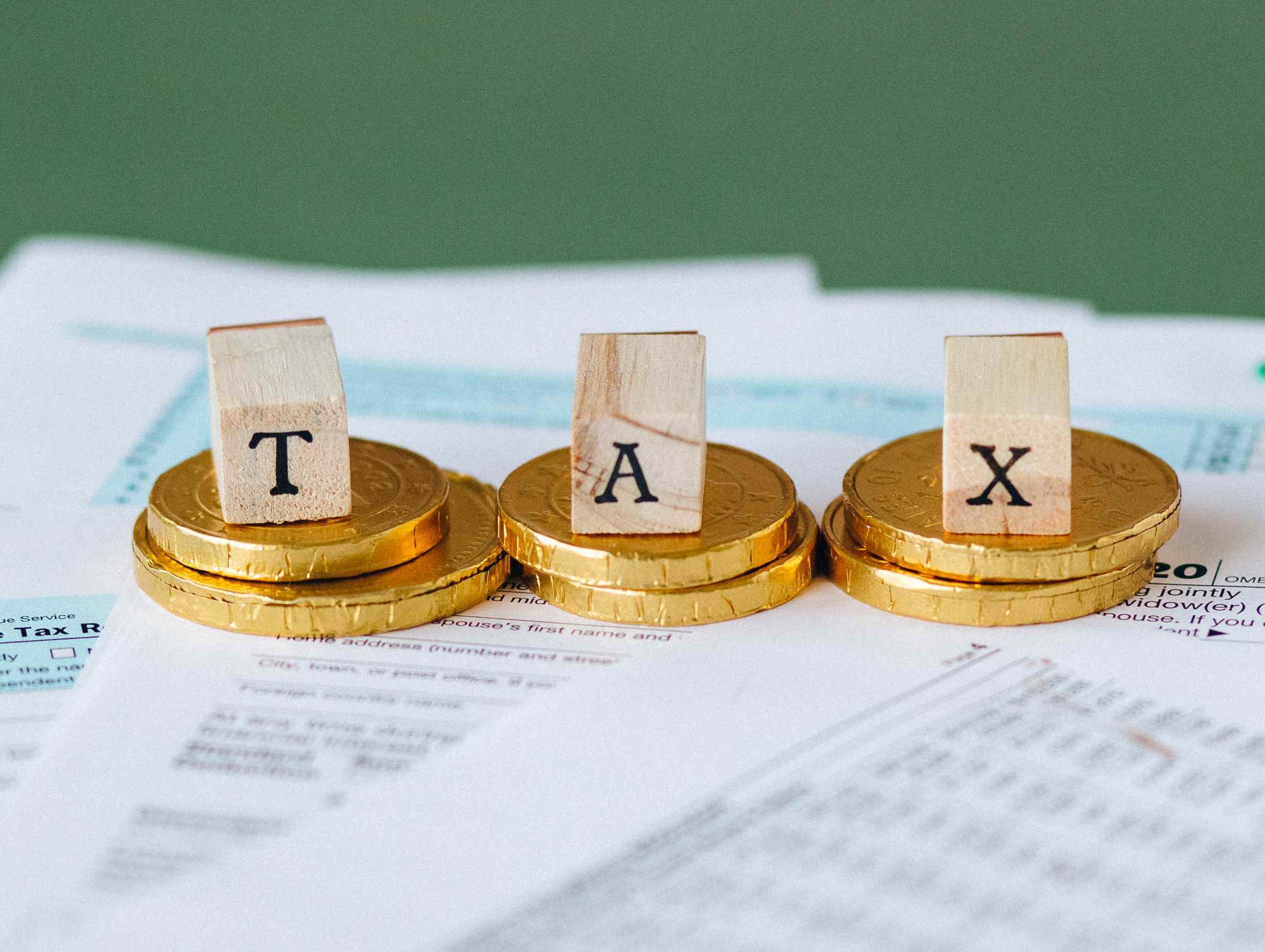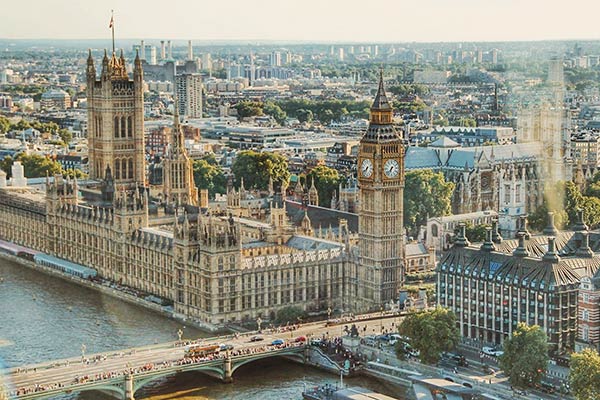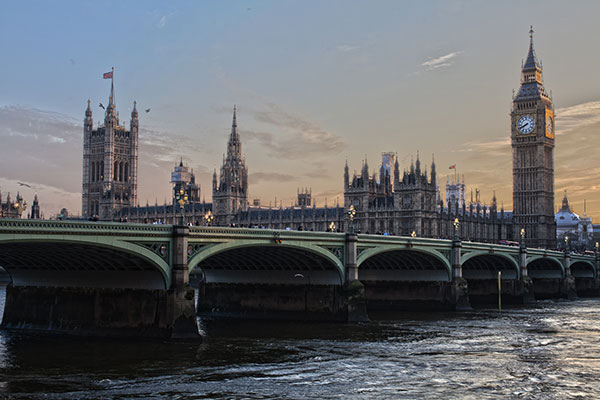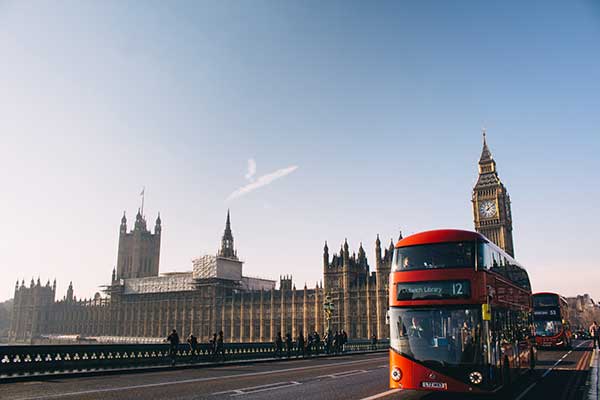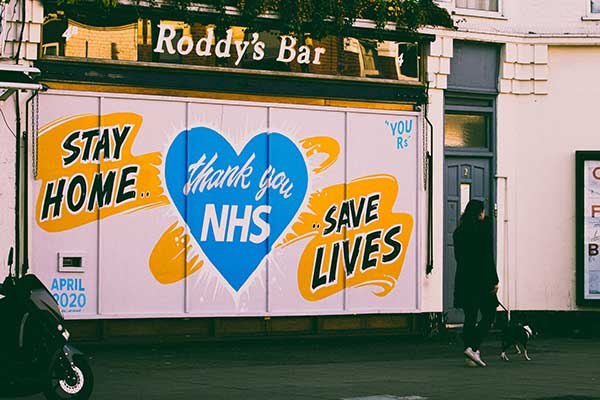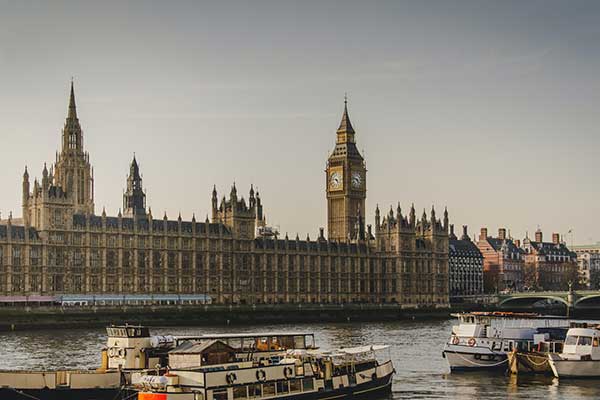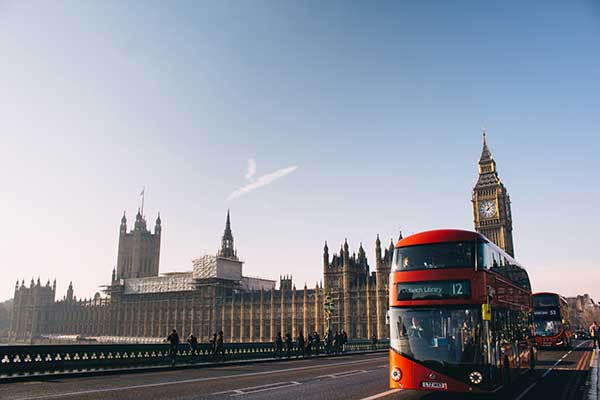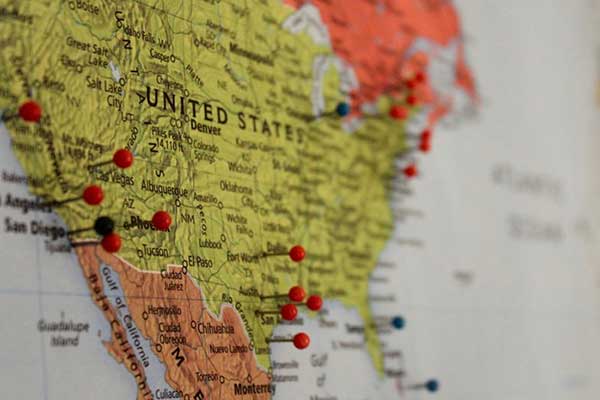Coronavirus Hub
The world is facing unprecedented impacts from the 2019 Coronavirus (COVID-19). The impact to people, businesses and supply chains is unfolding, with challenges in almost every location on the globe. As the response continues, how can you prepare and respond?
Latest announcements from the Government:
On 23rd November, the Prime Minister addressed the House of Commons to announce that when the national lockdown in England ends on December 2nd, England will move back into the regional, tiered lockdowns. Following today’s announcement, on Thursday the government will publish a breakdown of which areas will be allocated into which tier.
Work and Business
- Everyone who can work from home should do so
Bars, Pubs and Restaurants
Tier 1
- Venues must be table service only. They must stop taking orders at 10pm and must close by 11pm
Tier 2
- Pubs and bars must close, unless operating as restaurants. Hospitality venues can only serve alcohol with substantial meals. Last orders at 10pm and must close by 11pm
Tier 3
- Hospitality is closed, with the exception of sales by takeaway, drive-through or delivery
Large Events – Elite Sport, Live Performances & Business
Tier 1
- Open to the public but limited to 50% capacity, or 4,000 outdoors/1,000 indoors (whichever is lower). Social contact limits apply.
Tier 2
- Open to the public but limited to 50% capacity, or 2000 outdoors/1000 indoors (whichever is lower). Social contact limits apply.
Tier 3
- Events should not take place; Drive-in events permitted
Retail and Personal Care
- To remain open in all tiers
Travel
Tier 1
- Walk or cycle if possible. Avoid travel into Tier 3 areas (except where necessary such as for work, education, medical attention, youth services or caring responsibilities).
Tier 2
- Reduce the number of journeys made where possible. Avoid travel into Tier 3 areas (except where necessary such as for work, education, medical attention, youth services or caring responsibilities).
Tier 3
- Avoid travelling out of the area, other than where necessary such as for work, education, youth services, medical attention or because of caring responsibilities. Reduce the number of journeys made where possible.
Entertainment
- To remain open in all Tier 1 and 2 but indoor venues will be closed in Tier 3
More information the government’s Covid Winter Plan can be found at Gov.uk
“This is a radical intervention into the UK Labour Market"
Chancellor Rishi Sunak announced on the 24th September the latest financial support for businesses and jobs across the UK in the wake of the second wave of the pandemic.
On jobs:
- Jobs Support Scheme: The government will support wages of people in in viable jobs
- Starting from the 1st November, to be eligible employees must work a minimum of 33% of their hours
- For the remaining hours now worked the government and employer will each pay 1/3 of the employees’ wages
- This will mean that employees working 33% of their hours will receive at least 77% of their pay
- All small and medium sized businesses will qualify to apply for the scheme but larger businesses will only qualify if their turnover has fallen as a result of the pandemic
- The scheme will be open from November and will last for six months
- Businesses are able to claim both the Jobs Support scheme and the Jobs Retention Scheme
- The Chancellor has also extended the Self-Employment grant for an additional six months
Helping businesses with cash flow:
- Announced the Pay as you Grow Scheme which will allow Bounceback loans to be extended from 6 to 10 years
- Businesses can also choose to make interest only payments
- Businesses in trouble can suspend payments in full for six months and their credit rating won’t be affected
- The Government has guaranteed that small and medium business loans will be extended to 10 years
- The successor loan scheme will begin in January and will be the successor to all business loans that are currently set to end at the end of this year
- Businesses can now spread VAT bills over 11 smaller interest free payments from January 2021 without accruing any interest
Additional support for hospitality & tourism:
- The intended VAT increase from 5% to 20% has been extended and will not be introduced until March 31st, 2021
In addition, Chancellor Rishi Sunak announced on Friday 9th October that from November 1st, employers who work for UK firms forced to shut but law because of local coronavirus restrictions will get two thirds of their wages paid for by the government.
- The scheme will run for six months and will be reviewed in January
- Until November businesses that are asked to close can continue to use the furlough scheme
- The announcement comes amid regional leaders calling for more help for firms that are struggling as a result of localised lockdowns.
On Monday 12th October, the Prime Minister announced that businesses in Tier 3 regions would be eligible to apply for new £3,000 a month cash grants from the Government.
- Local authorities and the Government will make the decision on business closures in in Tier 3 regions- the strictest category- on an individual basis.
“We have reached a perilous turning point”
- Households can only meet up in groups of six both indoors and outdoors
- Schools, colleges, universities and places of worship will remain open
- Office workers should work from home if they can
- In professions where homeworking isn’t possible people should continue to attend their workplaces
- From Thursday, all pubs, bars and restaurants must operate with table-service only, except for takeaways
- All hospitality venues most close at 10pm, the same applies to takeaways although deliveries can continue after 10pm
- Staff in retail, staff and customers in indoor hospitality, all users of taxis and private hire vehicles are required to wear face coverings
- In retail, leisure, tourism and other sectors, Covid-secure guidelines will become legal obligations, businesses will be fined and could be closed if they breach these rules
- Business conferences, exhibitions and large sporting events will not be able to open from 1st October as planned
- From Monday, a maximum of 15 people will be able to attend wedding ceremonies and receptions, 30 people still be able to attend funerals
- For those that fail to self-isolate will be fined up to £10,000, this will also now apply to businesses breaking Covid rules
- If you fail to wear a mask or break the rule of six the fine has now double to £200 for a first offence
The restrictions announced yesterday by the Prime Minister only apply to England. Scotland, Northern Ireland, and Wales all have separate restrictions that may differ to the rules for England.
Coronavirus job retention scheme to end in October and a second grant for the self-employed
The Chancellor of the Exchequer, Rishi Sunak, announced on Friday (29th May) that the coronavirus furlough scheme will finish at the end of October.
From August 1st:
- Employers must pay an employee’s National Insurance and pension contributions
From September 1st
- Employers must pay an employee’s National Insurance, pension contributions and 10% of their wages
From October 1st
- Employers must pay an employee’s National Insurance, pensions contributions and 20% of their wages
In addition, from July the government is introducing a “flexible furlough” scheme which will allow furloughed employees to begin returning to work under the system, setting their hours with their employers. Businesses will be required to pay 100% of employee’s salaries for days worked, with the Government topping up pay for time off on furlough.
Some 8.4 million workers have been furloughed under the current scheme, with employers’ claims under the scheme having reached £15bn so far. The scheme is expected to cost a total of around £80bn, equivalent to £10bn a month.
The Chancellor also announced that he has extended the self-employed income support scheme with a second and final grant capped at £6,750 will be available to the self-employed in August.
For more information on the Chancellor’s extension to the self-employment support scheme and the next steps of the furlough scheme please visit Gov.uk
All non-essential retailers will be able to reopen in England from 15th June
The Prime Minister announced yesterday evening (25th May) that all non-essential shops will be able to reopen in England by 15th June, with outdoor markets and car showrooms able to reopen from 1st June.
This announcement comes as part of the government’s next phase in the roadmap to ease the current lockdown restrictions and rebuild the UK economy. These steps will also see millions of workers in the retail sector able to return to work.
To be able to reopen shops must adhere to social distancing guidelines and new hygiene standards, more details of which can be found on the Gov.uk website.
The British Retail Consortium have welcomed the announcement, adding it provided "much-needed clarity on the route ahead".
A spokesman for the Confederation of British Industry added that the new guidance would help retailers to open "safely and securely".
Following the Prime Minister’s announcement on Sunday evening during which he laid out the first steps for the UK to leave the current lockdown conditions, the government has now published “Our plan to rebuild”, the government’s Covid-19 recovery strategy that explains how businesses and workers can take the next steps to return to life before the lockdown.
In addition, Chancellor Rishi Sunak announced an extension to the UK’s Coronavirus Retention Scheme until October in order to help businesses struggling with the effects of the pandemic retain their staff.
Extension of the Coronavirus Retention Scheme
- It is estimated that 7.5million people are now furloughed across the UK through the scheme
- The Chancellor confirmed that employees will continue to receive 80% of their monthly wages up to £2,500, but mentioned that the government will ask companies to “start sharing” the cost of the scheme from August
- The Chancellor said during his statement that the government was backing workers and companies during the lockdown and would support them coming out too
- From August the scheme will continue for all sectors and regions of the country but will have greater flexibility to support the transition back to work. This would mean that employers currently using the scheme would be able to bring furloughed employees back in a part-time capacity
- For more information on furloughing and what it might mean for your business, please click here
Returning to work
- People who can work from home should continue to do so "for the foreseeable future" as this will help minimise the risk of overcrowding on public transport help to obey social distancing guidelines
- Everyone who cannot do their job from home should go to work, provided their workplace is open
- The Government says people working in sectors including food production, construction, manufacturing, logistics, distribution and scientific research in laboratories should go to work
- However, hospitality and "non-essential" retail businesses will remain closed.
- Workplaces will be required to follow "Covid-19 secure" guidelines, which the Government plans to publish this week. Employers are already being encouraged to change shift patterns and rotas in order to have staff working in smaller teams
- Work surfaces should be cleaned frequently, particularly communal surfaces such as door handles or lift buttons and communal areas like bathrooms, kitchens and tea points
Meeting family and friends
- From Wednesday (13.05), people can visit a family member, partner or friend outside of their household if they remain two metres apart and meet outdoors
- However, this means that you can meet someone such as a grandparent individually and not with another member of your household
Pubs, restaurants and non-essential shops:
- Pubs and restaurants must remain closed until the 4th July at the earliest across the UK
- From July 4th, food service providers, pubs and hotels will be able to open along with hairdressers, churches and leisure facilities such as cinemas
- For venues that are unable to facilitate current social distancing guidelines, they may not be able to open by July 4th or may only be able to open partially
- When pubs and restaurants are encouraged to re-open, this will be done in a phased way with soft reopening’s to ensure that they can properly adopt the necessary Covid-19 safety guidelines
- The reopening of non-essential shops such as hairdressers and beauty salons is currently intended to be from July 4th, however, this will only be done when it is considered safe to do so as the close proximity of this environment means that the risk of transmitting the disease is higher
Transport
- Employees who cannot work from home are asked to avoid using public transport where possible and instead travel by driving, walking or cycling
- The government is working with public transport operators to help bring services back to pre-Covid levels as soon as possible so workers can get to work safely
- Further guidance on what operators must do to uphold social distancing rules is expected to be issued later this week
- The government is encouraging companies to consider staggering working hours to help reduce the number of people travelling at peak times and to expand bicycle storage facilities
- The government earlier in the crisis announced that £2 billion will be invested to help create more cycle lanes and widen pavements
Education
- Vulnerable children, and those of critical workers, will be encouraged to attend school
- However, a full reopening of schools is not on the table to try and limit the chance of creating a second wave of the virus
- To successfully implement social distancing, year groups that do go back are expected to be spread across multiple classrooms, with heads required to come up with plans tailored to their individual schools
- Parents reluctant to send their children back in these groups will not be fined
- The current guidance does not cover nurseries but does say that nannies and childminders are able to go back to work, provided they can meet necessary health and safety requirements
- The current guidance also does not cover universities. Students are expected to continue operating remotely for the rest of the academic year at this stage
For more information on the government’s recovery strategy and to review the whole document, please visit gov.uk
“Sowing the seeds of our ultimate recovery” – Chancellor Rishi Sunak announces that 140,000 companies have already applied for the Coronavirus Job Retention Scheme which opened for applications at 8am this morning. Businesses that have applied should receive the equivalent of 80% of employee’s salary within six working days.
In addition to the current schemes, the Chancellor also announced a new Future Fund in the form of a £1.25bn support package for UK businesses driving innovation and development. The package includes:
- A £500 million investment for high-growth companies impacted by the crisis, made up of funding from the private sector and matched by the government
- £750 million of grants and loans for SMEs focusing on research and development
More details on the government’s announced Future Fund support package can be found on the Gov.uk website.
Today’s announcements indicate that the government is thinking about the long term impact of the coronavirus and the lockdown measures on businesses and business funding. To ensure that as many businesses as possible can survive this difficult period it is crucial that the government continues to provide clear guidelines and support for businesses and business owners at this unprecedented time.
Changes to insolvency rules to allow firms “greater flexibility as they face the current crisis”: Latest announcements to help UK businesses
On Saturday, Alok Sharma, the UK business secretary announced new insolvency measures to prevent businesses unable to meet debts due to the impact of coronavirus from being forced to file to bankruptcy.
Changes include:
- Allow companies undergoing a restructuring process to continue to have access to supplies and raw materials
- A temporary suspension of wrongful trading provisions for company directors to remove the threat of personal liability during the pandemic, which will apply retrospectively from March 1st
- Companies required to hold annual general meetings will be able to do so flexibly in a matter compatible with public health guidance, which may include postponing or holding the AGM online, or by phone using only proxy voting
The announcement aims to allow directors to pay staff and suppliers even if they are concerned that the company could become insolvent and would allow more companies to “emerge intact the other side of the Covid-19 pandemic”. It is good to see that the government is making significant changes to policies during this time and protecting as many businesses as they can. However, for many businesses questions still remain as to what the next few months will look like.
“You have not been forgotten”: Measures announced to protect the UK’s self-employed workforce
Today the Chancellor had a clear message as he announced a series of measures to help the UK’s self-employed workforce. While he highlighted the difficulties that the diverse pool of the UK’s self-employed present, the package announced today should help 95% of the self-employed population and be targeted to those in the most need. The package included:
- The Self-Employed Income Support Scheme: Self-employed workers with a trading income of £50K or less, will receive a taxable grant from the government of 80% of their average income based on their average income over a 3 month period up to £2,500. This is the same amount as furloughed employees will receive
- The government will also be allowing those self-employed workers who missed the tax assessment deadline will now have four more weeks in which to submit their return
This is in addition to those measures introduced earlier by the Chancellor which included the Business Interruption Scheme and reducing the income floor so that self-employed workers can access universal credit. This is a difficult time for all businesses, but it’s encouraging to see the government’s commitment to protecting jobs as far as possible.
“You must stay at home” – Prime Minister Boris Johnson announces restrictions on people in the UK leaving their homes
On Monday night’s daily broadcast, Prime Minister Boris Johnson announced that from Monday evening, UK residents must stay at home to stop the virus from spreading between households. Here at Close Brothers we’ve produced a roundup of the government’s latest announcements and what this means for people across the UK.
People will only be allowed to leave their homes for:
- Shopping for basic necessities, as infrequently as possible
- One form of exercise a day such as a run, walk, or cycle, alone or with members of your own household
- Any medical need: to provide care or to help a vulnerable person
- Travelling to and from work: However, this should only be done when it is absolutely necessary and when you cannot work from home
The government will immediately:
- Close all shops selling non-essential goods: including clothing and electronic stores – as well as other premises like libraries, playgrounds and outdoor gyms, and places of worship
- Stop all social events: including weddings, baptisms and other ceremonies, but allow funerals. Parks are remaining open for exercising but gatherings of more than two people will be dispersed.
For any employees that had been continuing to go to work, last night’s announcement has encouraged all employees that can be done at home to do so going forward. At Close Brothers we understand that these measures are likely to have a significant impact on businesses and how they continue to operate going forward. We will continue to share useful resources and articles to support you and your business navigate this difficult time. If you need advice on how to be productive when working from home please find our tips here.
“We will stand by you”- Government announces new measures to support businesses and employees
In Friday’s daily conference, the Chancellor announced what he called ‘unprecedented measures” in order to help British businesses weather the storm, and keep paying their employees. Here at Close Brothers we’ve put together a round up of all the measures announced which will impact businesses across the country:
- Coronavirus Job Retention Scheme: The government has announced that it will pay 80% of employees’ wages up to £2,500 in order to prevent staff from being laid off by those businesses most impacted by the virus. This scheme will last 3 months and there will be no limit to the amount of funding that the government will provide. For businesses should contact HMRC for the grant which should be ready within weeks.
- Coronavirus Business Interruption Scheme: The Chancellor has announced that this scheme will now be made interest free for 12 months. This will be available from Monday.
- Defer VAT payments for businesses: This will be to support businesses with their cash flow in order to help them pay their employees. Businesses will defer their VAT payments from now until June until the end of the financial year.
- Reduce the minimum income floor suspended for the self-employed: this means that self-employed workers can access universal credit equal to statutory sick pay.
- Defer self-assessment tax payments: These will be deferred until January 2021.
As the Chancellor mentioned these are difficult times for all- particularly for small businesses. We, at Close Brothers are encouraged to see these measures introduced to support the UK’s businesses. We will continue to share updates as announced by the government as well as some helpful tips and guidance to help everyone survive and thrive in difficult times.
- Schools across England, Scotland, Wales and Northern Ireland are to close for the majority of pupils on Friday because of the coronavirus epidemic
- School exams are to be cancelled this summer, with GCSEs and A-levels to be graded on work already completed
- Schools will focus on looking after the children of keyworkers and vulnerable children
- Chancellor Rishi Sunak has announced that £330bn will be made available in loan guarantees for businesses affected by the pandemic
- The one year business rates holiday has been extended to all retailers as part of the government’s updated economic support for UK businesses and amid the coronavirus crisis
- Cash grants for the UK’s smallest businesses have been increased from £3000 to £10,000
- For those without insurance, Sunak said there would be an additional cash grant of up to £25,000 per business to help them mitigate the economic impact of the coronavirus pandemic
- The Government has advised against "non-essential" travel and contact with others
- People should avoid pubs, clubs and theatres, and work from home if possible
- Pregnant women, people over the age of 70 and those with certain health conditions are urged to consider the advice "particularly important” and will be asked to self-isolate within days

